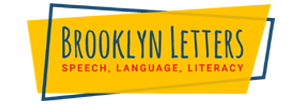READING LISTENING COMPREHENSION TUTORING

READING LISTENING COMPREHENSION TUTORING

As Featured In:
Our Speech and Language Therapists Travel To Your NYC Metro Area Home! Expert Private Pay In-Person Reading Listening Comprehension Tutoring | Free Consultations and Meet & Greets with Our Staff.
Our Speech and Language Therapists Travel To Your NYC Metro Area Home! Expert Private Pay In-Person Reading Listening Comprehension Tutoring | Free Consultations and Meet & Greets with Our Staff.
FOR SPEECH LANGUAGE THERAPY SERVICES OUTSIDE OF BROOKLYN
We travel to:
BROOKLYN NEIGHBORHOODS
Our Speech-Language Pathologists and Therapists
We travel to you and we also offer remote services. Some of our speech-language pathologists are trained in the Orton Gillingham approach. Many of our speech-language pathologists are trained in literacy and offer support with decoding, spelling and reading fluency services. Our speech-language pathologists and therapists work with babies, toddlers, school-age students, and adults with expertise in:
Our Speech-Language Pathologists and Therapists
We travel to you and we also offer remote services. Some of our speech-language pathologists are trained in the Orton Gillingham approach. Many of our speech-language pathologists are trained in literacy and offer support with decoding,
spelling and reading fluency services. Our speech-language pathologists and therapists work with babies, toddlers, school-age students, and adults with expertise in:
- Pronunciation/Enunciation
- Articulation
- Expressive Language Disorder
- Writing & Speaking Therapy
- Comprehension- Listening & Reading
- Listening Comprehension
- Auditory Processing
- Vocabulary
- Teens – Language Therapy
- Stuttering
- Feeding
- Oral Motor
- Voice
- AAC
- Adult Speech Therapy
- Public Speaking
- Accent Reduction Modification Speech Therapy
An expert in language and literacy disorders, recognized as a licensed language therapist or speech-language pathologist, is the most qualified professional to assist your child.


- Process and understand events, dialogue, ideas, and information
- Relate new information to previous knowledge or what they already know
- Adjust current knowledge in relation to new ideas or information and look at ideas in different ways or standpoints
- Identify and recall key points in a story or other reading material
- Understand hidden or underlying meanings (read between the lines)
Best to tackle these 4 sentences types for reading comprehension:
- Passive voice
- Adverbial clauses and temporal and causal conjunctions
- Center-embedded relative clauses
- Sentences with three or more clauses
Read about 2021 Reading Model for Fluency, Comprehension, Self-Regulation, and Vocabulary.
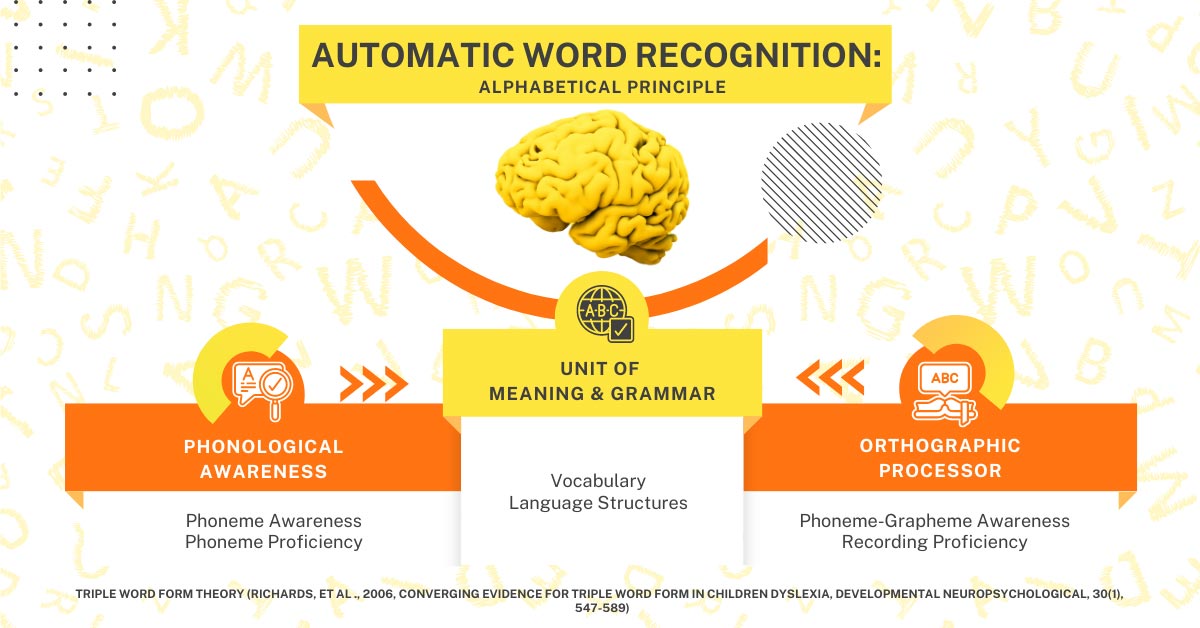
Key Comprehension Strategies for Students
-
Making connections or using background knowledge – Students relate new information with their existing knowledge, which includes their own experiences, other texts they have read, and what they know of the world.
-
Asking questions – Students ask themselves questions as they go through the text, including how they feel towards what they are reading and the author’s purpose. This helps the reader process and summarize information and identify main ideas and underlying meanings.
-
Visualizing – Students create mental images of the printed word to understand events and situations in the text. Studies show that visualizing allows readers to have better recall of what they have read.
-
Determining the importance of a text – This means that a student can differentiate between crucial and interesting information and fact and opinion; identify cause and effect and themes; compare and contrast ideas; determine problems and solutions; summarize; list steps in a process; and recall information that answer specific questions.
-
Making inferences – Students take clues from the text and combine it with their background knowledge and identify answers to underlying themes.
-
Synthesizing – Students are able to use new information in combination with existing knowledge to create original ideas or new perspectives.
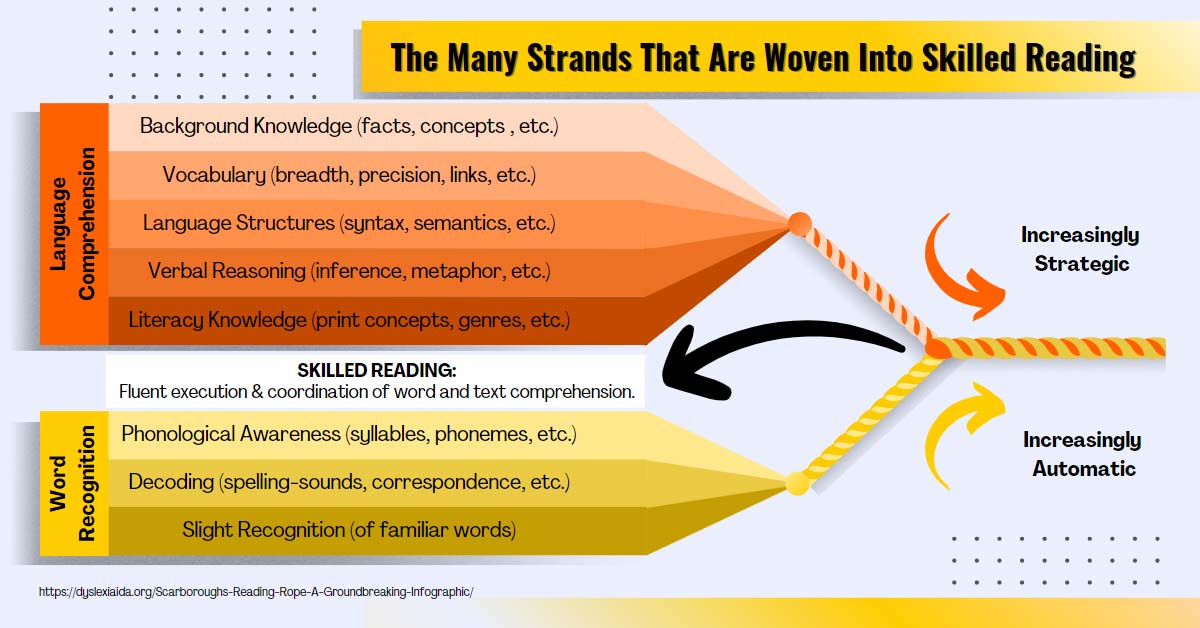
Listening Comprehension
Receptive language disorders involve difficulties in understanding spoken and written language, regardless of whether it’s through listening or reading. These language comprehension challenges are not related to hearing loss. Individuals with receptive language disorders often struggle with expressive language, resulting in mixed receptive-expressive language disorders. Discover effective ways to boost receptive language skills. Read SPELLTalk questions and answers about the language literacy network– which represents normal reading and writing processes and this model connects language comprehension to the literacy.
Children with receptive language issues struggle to comprehend spoken, written, gestural, or symbol-based communication. This difficulty can hinder their ability to understand questions, interpret instructions, and engage in age-appropriate conversations.
Delays in receptive language development can affect a child’s social and academic progress. Additionally, kids with receptive language disorders often encounter challenges in expressive language, which involves using language to convey ideas. Learn what is the link between executive functioning and language. Download our What is Executive Functioning Pamphlet!
There are also instances when listening difficulties can be caused by a central auditory processing disorder. It’s when there are loud sounds, e.g., a noisy classroom, and the brain has a hard time extricating the signal (teacher’s voice, aka speech) from the students talking aloud: the brain fails to assign the correct meaning to the sounds in words one hears. The condition is not related to hearing problems or intelligence. However, it may coexist and overlap with other disorders, such as ADHD, language disorders, and learning disabilities. Find out more about the signs of a central auditory processing disorder and how to treat it.
At Brooklyn Letters, we specialize in working with students who have difficulties processing language such as reading comprehension difficulties, receptive language/language comprehension difficulties, dyslexia, and students with auditory processing difficulties. We are experts are differentiating these different underlying conditions.
Our specialized intervention focuses on improving the student’s listening or reading comprehension skills, vocabulary (nouns, action words), grammar (understanding complex sentences, paragraphs, and directions), and improving organization to help facilitate what they heard or read.
We let the students know what we’re doing so they can be part of the process. We also consider their interests, strengths, and learning styles, maximizing effectiveness and ensuring the students don’t get frustrated. After all, we’re not trying to fit a square peg into a round hole.


If your child likes music and flying saucers, let’s incorporate it! Drawing and imaginary animals? For sure! These skills are targeted for remediation during fun activities, and they are also implemented into the student’s curriculum.
We have a veritable toolbox of tools to help your child. We teach strategies to facilitate comprehending language, and these include:
- using preparatory sets (before reading/hearing a story, activate background knowledge about the material, discussing unfamiliar vocabulary words, making predictions about the material)
- using visual aids (e.g. visual and verbal organizers)
- understanding story grammar (make story maps – who is the main character, what did the main character do, etc.)
- comprehension monitoring to help students be aware when they do not understand what they read or what they heard
- repeating information, summarizing, paraphrasing, visual imagery, self-question strategies (e.g. what is the main idea, asking questions after reading or listening to a passage to monitor what they are comprehending, understanding character’s plans and intentions, including creating illustrations)
- using imaginary play to act out comprehension
- drawing pictures to illustrate understanding of what they are reading or listening
- understanding pronouns and connecting pronouns to characters in the stories
- understanding word relations and conjunctions (e.g. temporal words such as then, after, etc., and oppositional relation words, such as but, though, etc.)
We take advantage of a variety of techniques and tools that aid in literacy development, including vocabulary development, learning techniques, and a systematic multisensory approach. The Report of the National Reading Panel: Teaching Children to Read discusses evidence-based techniques to facilitate literacy development.
MEET OUR BROOKLYN SPEECH LANGUAGE PATHOLOGIST WHO TRAVEL TO YOUR HOME

Stefanie S.
MS, CCC- SLP, SPEECH LANGUAGE PATHOLOGIST

Theo W.
M.S. CCC-SLP, Speech Language Pathologist
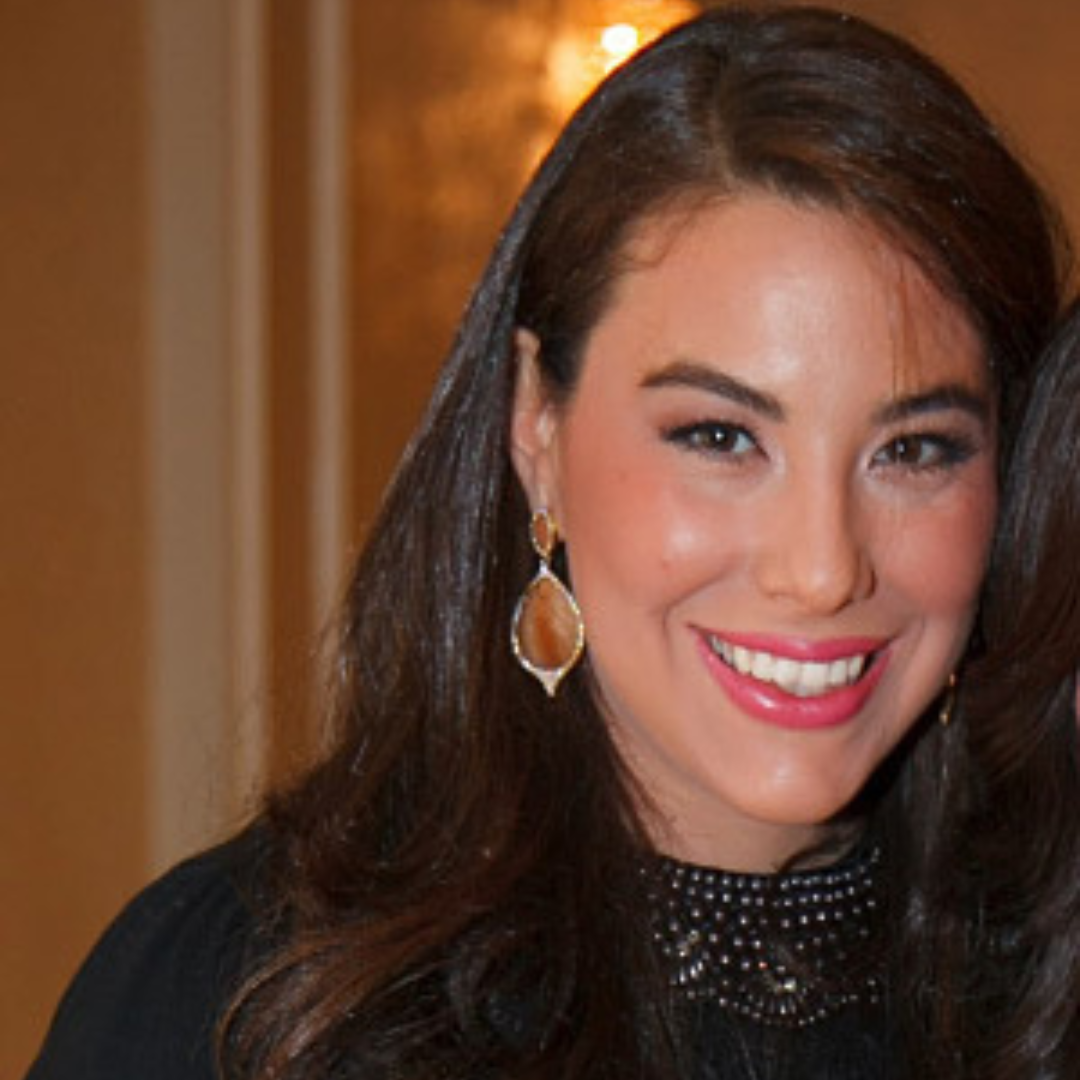
Rebecca K.
M.S. CCC-SLP, SPEECH LANGUAGE PATHOLOGIST
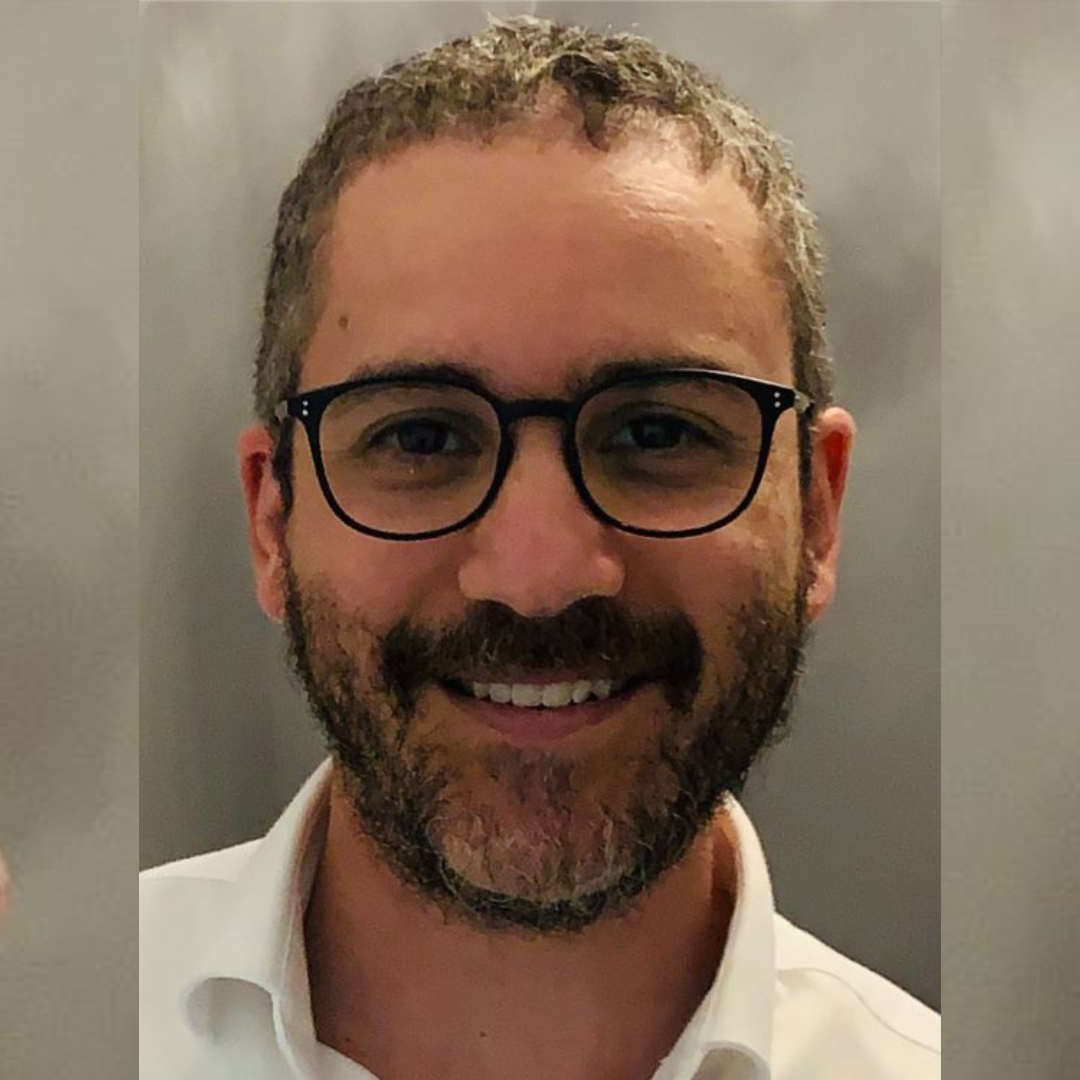
Sholom
MA, CCC-SLP, TSSLD, SPEECH LANGUAGE PATHOLOGIST

Cathy E.
M.S. CCC-SLP, SPEECH LANGUAGE PATHOLOGIST
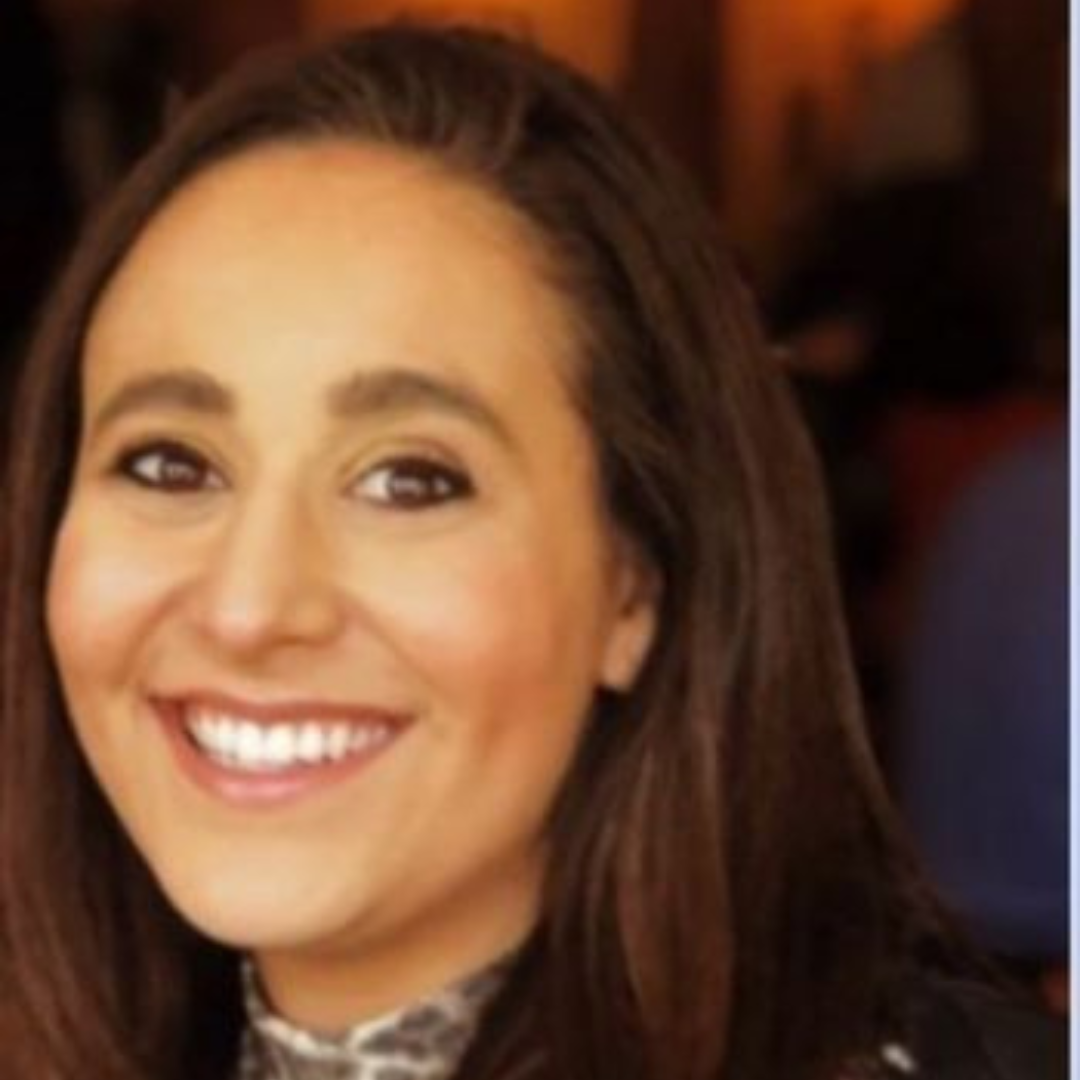
Lindsay S.
Speech-Language Therapist, M.S. CCC-SLP, TSSLD

Julia
CCC-SLP, Speech-Language Pathologist

Alina G.
M.S. CCC-SLP/TSSLD, SPEECH-LANGUAGE PATHOLOGIST
FREE CONSULTATION!!!
Call: (347) 394-3485,
Text: (917) 426-8880
Email: [email protected]
(we respond to email right away!)
